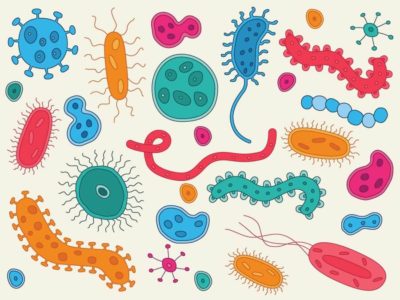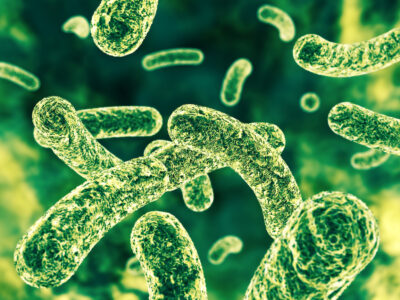Many people don’t consider their mouth and teeth when they think about their health. But, the oral cavity reflects the overall health of the body. Dental cavities may be the first indicators that the body is not balanced. Often times these imbalances in the system are due to an acidic environment or a nutrient deficiency. This can lead to serious problems including gum disease, oral cancer, pancreatic cancer, Alzheimer’s and heart disease.
Oral Ecology
The mouth is full of microorganisms that form a complex ecological community that is fundamental to our health and physiology. This microbiome consists of bacteria, viruses, fungi and protozoa. Most of these microbes are friendly and work hard at maintaining a healthy mouth. The microbes help protect the integrity of our teeth and gums, control pathogenic invaders, support immune system, regulate the cardiovascular system, have anti-inflammatory properties and aid in pre-digesting our food. Wow, these microbes sure have power in our overall health, who knew.
The downside is when these friendly microbes are not balanced or healthy, it affects the entire collection of microorganisms in the body. It may come as a surprise, but microbial organisms are responsible for oral disease, dental caries and periodontal disease. When our lifestyles comprise of unhealthy diets, tobacco, and stress, the bacteria goes awry, which triggers an imbalanced microbiome and oral environment.
Balance Your Bacteria
Bacteria (S. mutans, S. sobrinus and Lactobacilli) in the mouth are capable of breaking down enamel. This bacterium converts sugars and other dietary carbohydrates to acids, creating a low pH, which can lead to a compromised body. Other degrading bacteria including Prevotella and Porophyromonas, also break down proteins into amino acids that produce ammonia and sulfur compounds which are virulent in nature contributing to bad breath and oral disease. These organisms grow and metabolize optimally in low pH, contributing to the formation of plaque. Unfortunately, if not removed, plaque can cause inflammation which causes the gums to bleed, bad breath and eventually gum disease. Yikes, this is real serious stuff and if not treated it can lead to demineralization, jawbone infections and loss of teeth.
Damaging Effects of Plaque
Just as your eyes are the windows to your soul, the mouth is a gateway to the entire blood supply. The moist environment in the mouth provides an ideal setting for the growth of bad bacteria causing inflammation, infection and eventually gum disease.
If gum disease goes unnoticed for too long, it can cause the gums to recede making it very likely to lose all of your teeth. Bacteria that enters through the blood vessels in the mouth can affect the body’s immune response, causing inflammation and build up of plaque in the heart and arteries, contributing to heart disease. Some studies have also shown bacteria P. gingivalis to find its way to the brain tissue, potentially damaging functional neurons related to memory. Over time accumulation of plaque in the arteries can be fatal if it obstructs blood flow to the heart or brain, causing a stroke.
Ultimate Lymph System
Ideally, we can help protect the healthy bacteria by keeping the oral ecology balanced and keeping our dental lymph system operating optimally. For example, the acidic imbalance and inflammation affects the dental lymph system if there is too much infection for the body to remove. It may come as a surprise, but obstruction in the lymph system may also prevent the teeth from getting proper nutrients from the digestive tract.
Easy Tips for a Healthy Mouth
The good news is that many of the diseases that start in the mouth can be prevented. That is why it is important to maintain healthy teeth and gums. The following measures not only keep your teeth healthy but can prevent major health problems:
- Regular dental check ups
- Brushing teeth
- Flossing
- Mouth rinses
Modifying lifestyle factors such as food choices, good oral hygiene and stress free living may help reestablish a health-promoting oral microbiome. The World Health Organization (WHO) has recognized the following modifiable factors for oral and general health.
- Eat right
Diet has a huge impact on tooth decay and gum diseases. It is ideal to have a healthy, balanced and nutritious diet consisting of vegetables, fruit, grains and lean protein foods. - Lower the acidity
Reduce the amount and frequency of high-acid foods and sugary foods and drinks (the primary causes of tooth decay and damage.) - Avoid tobacco and alcohol
These can interrupt the natural balance of our oral microbiome. - Use Natural Oral Care Products.
Using Natural Products free of harmful chemicals will keep your mouth fresh, clean, and healthy. Learn more about how natural products and conscious companies are leading the way to a healthier planet and a healthier you!
Restore your Mouth’s Equilibrium
Your mouth reflects your overall health status. It is believed that disrupting the normal composition and function of the microbiome can have significant consequences for human health. Dental diseases are as important as any other disease, after all teeth are an essential part of your body. Because oral disease significantly impacts quality of life when it interferes with eating, nutrition, self-esteem and health, remember to keep the mouth healthy for as long as possible. We need to create the right environment so the microbiome can effectively balance, restore and replenish itself. Ideal natural health and wellness may be the way. A healthy mouth means a higher quality life, something to smile about.
You May Also Like…




